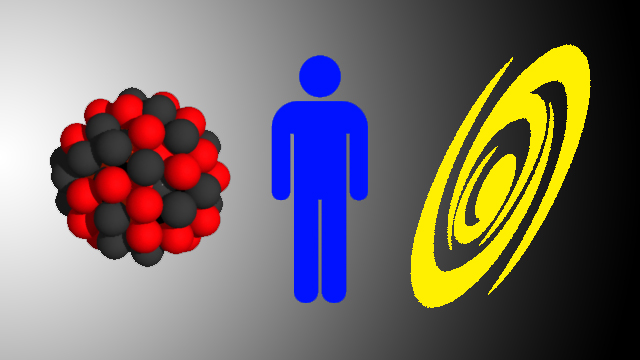Is the universe really so big, or are we just very, very small?
Okay, I admit it, this is a question I've toyed with for a very long time—since sometime back in childhood. It all started around the time I had my first exposure to the idea of scale, and the vastly different scales between the cosmological and the subatomic, with us humans fitting in somewhere between.
Since we're indigenous to the realm of scale we developed in, naturally things in our immediate experience are regarded as "normal" in size. But take a short journey into the realms of scale above and below our own, and things start to seem very, very—well, mind-bending.
On the cosmic side we find galaxies: structures that contain hundreds of billions of stars and measure so far across that light traveling at its almost unimaginably zippy velocity of 300,000 kilometers per second take tens of thousands of years to span. Our own Milky Way galaxy is 100,000 light years across.
On the subatomic side we have atomic nuclei, where most of an atom's mass is packed away. An atomic nucleus is so small that even if the entire atom (nucleus, orbiting electrons, and all the empty space between—about 1 ten-billionth of a meter) were upscaled to the size of a basketball, the nucleus would still be too small for the human eye to perceive. An atomic nucleus is roughly 1 million-billionth of a meter across.
